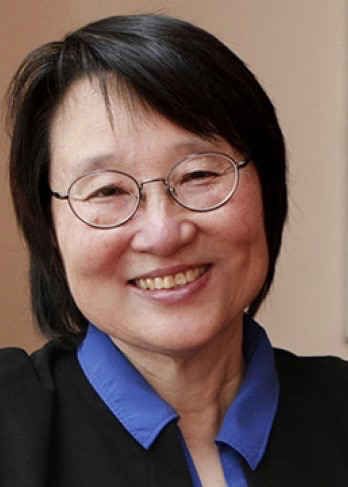Keynote Speakers
We are very happy to announce the following keynote speakers (in alphabetical order):

Farinaz Koushanfar, UC San Diego
Title: Machine Learning on Encrypted Data: Hardware to the Rescue
Speaker: Farinaz Koushanfar, Henry Booker Scholar Professor of Electrical and Computer Engineering, University of California San Diego
Short Summary: Machine Learning on encrypted data is a yet-to-be-addressed challenge. Several recent key advances across different layers of the system, from cryptography and mathematics to logic synthesis and hardware are paving the way for practical realization of privacy preserving computing for certain target applications. This talk highlights the crucial role of hardware and advances in computing architecture in supporting the recent progresses in the field. I outline the main technologies and mixed computing models. I particularly center my talk on the recent progress in synthesis of Garbled Circuits that provide a leap in scalable realization of machine learning on encrypted data. I explore how hardware could pave the way for navigating the complex space of privacy-preserving computing in general, and enabling scalable future mixed protocol solutions. I conclude by briefly discussing the challenges and opportunities moving forward.
Short Bio: Farinaz Koushanfar is a professor and Henry Booker Faculty Scholar in the Electrical and Computer Engineering (ECE) department at University of California San Diego (UCSD), where she is the founding co-director of the UCSD Center for Machine Intelligence, Computing & Security (MICS). Prof. Koushanfar received her Ph.D. in Electrical Engineering and Computer Science as well as her M.A. in Statistics from UC Berkeley. Her research addresses several aspects of efficient computing and embedded systems, with a focus on system and device security, safe AI, privacy preserving computing, as well as real-time/energy-efficient AI under resource constraints, design automation and reconfigurable computing. Professor Koushanfar has received a number of awards and honors for her research, mentorship, teaching, and outreach activities including the Presidential Early Career Award for Scientists and Engineers (PECASE) from President Obama, the ACM SIGDA Outstanding New Faculty Award, Cisco IoT Security Grand Challenge Award, Qualcomm Innovation Award(s), MIT Technology Review TR-35, Young Faculty/CAREER Awards from NSF, DARPA, ONR and ARO, as well as a number of Best Paper Awards. Dr. Koushanfar is a fellow of the IEEE, and a fellow of the Kavli Foundation Frontiers of the National Academy of Sciences.

Ruby Lee, Princeton University
Title: Speculative Execution Attacks and Hardware Defenses
Speaker: Ruby Lee, Princeton University
Short Summary: Speculative execution attacks like Spectre and Meltdown exploit hardware performance optimization features to illegally access a secret and then leak the secret to an unauthorized recipient. Many variants of speculative execution attacks (also called transient execution attacks) have been proposed in the last few years, and new ones are constantly being discovered. While software mitigations for some attacks have been proposed, they often cause very significant performance degradation. Hardware solutions are also being proposed actively by the research community, especially as these are attacks on hardware microarchitecture. In this talk, we identify the critical steps in a speculative attack, and the root cause of successful attacks. We define the concept of “security dependencies”, which should be implemented to prevent data leaks and other security breaches. We propose a taxonomy of defense strategies and show how proposed hardware defenses fall under each defense strategy. We discuss security-performance tradeoffs, which can decrease the performance overhead while still preventing security breaches. We suggest design principles for future security-aware microarchitecture.
Short Bio: Ruby B. Lee is the Forest G. Hamrick Professor in Engineering and Professor of Electrical and Computer Engineering at Princeton University, and the Director of PALMS (Princeton Architecture Lab for Multimedia and Security). Her current research lies at the intersection of Cyber Security, Computer Architecture and Deep Learning. She designs fundamental security features into computer systems, from smartphones to clouds, including secure processors and secure caches that are resilient to cache side-channel attacks. She uses deep learning to improve security, including detecting anomalous behavior in power-grid systems, cloud computing and smartphones. She also works at improving the security of deep learning systems. Prof. Lee is a Fellow of the ACM and IEEE, member of the American Academy of Arts and Sciences, and has over 130 U.S. and international patents and numerous publications. She has served on National committees that have improved cybersecurity research in the U.S. Prior to Princeton, Lee was chief architect at Hewlett Packard, responsible at different times for processor architecture, multimedia architecture and security architecture. She was a founding architect of the PA-RISC architecture used world-wide in HP’s business, technical and control computer families for decades, and architect of the first multimedia instructions in commercial microprocessors that facilitated ubiquitous multimedia. Her work in security has been the forerunner of industry hardware security offerings. Lee has a B.A. (distinction) from Cornell University, where she was a College Scholar, and a PhD in E.E. (minor in C.S.) from Stanford University.
